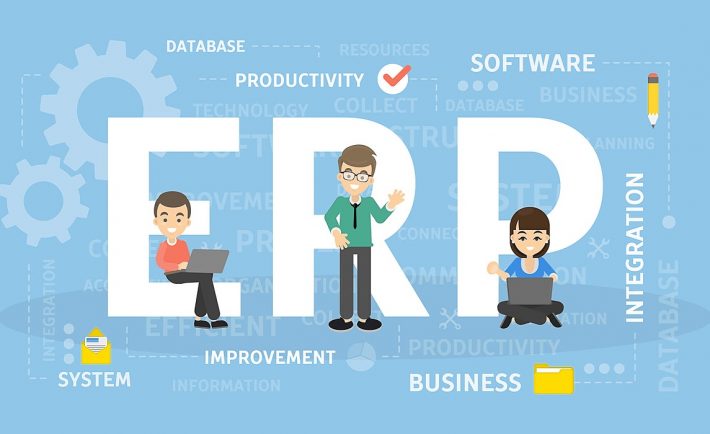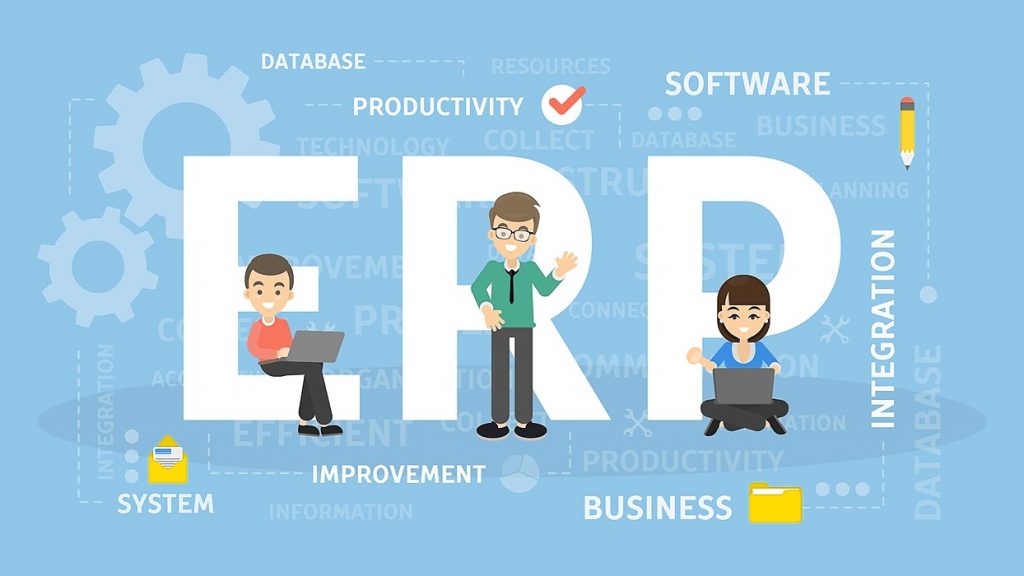
Enterprise resource planning (ERP) refers to the integrated management of business processes through advanced software. Essentially, ERP systems streamline and automate a business to enhance efficiency and productivity.
ERP systems contain an entire suite of applications, including financials, manufacturing, supply chain, asset life cycle management, customer relationship management, human capital management, order management, sales, and much more.
Numerous industries utilize ERP systems, such as manufacturing, distribution, construction, engineering, energy, retail, transportation, and utilities.
Understand the primary advantages and disadvantages of an ERP system to discover whether ERP is a beneficial investment for your business.
Advantages of Enterprise Resource Planning

ERP systems offer numerous advantages for businesses.
Improved Efficiency
Significantly improve efficiency to excel productivity by implementing an ERP system.
ERP systems completely integrate data and information across the entire business, resulting in the elimination of repetitive processes and reduced time spent on daily administrative tasks. Valuable time saved by employees can be dedicated towards more important and profitable activities.
Additionally, a synced system assists in preventing potential errors, meaning less time wasted fixing unfortunate mistakes.
Increased Visibility
ERP systems increase visibility to propel business growth.
Important data and information regarding every department is easily accessible through ERP software, allowing management to review insights about the business’s finances, processes, and strategies. Greater visibility means your business can proactively control improvement by creating detailed plans for efficiency.
Enhanced Communication
ERP software enhances communication to encourage greater collaboration.
An ERP system functions as an interdepartmental database that provides access to necessary data instantly. Updates regarding projects and plans are quickly and correctly communicated to every member of the business.
In addition, ERP systems improve external communication by offering better customer service. The software tracks important information about clients, allowing you to focus on earning and maintaining customer relationships.
Secured Data
Guarantee your business’s data is secure by incorporating an ERP system.
The heart of every business is data, meaning it’s incredibly important to ensure your data is protected. ERP software creates a single source of business information, increasing the accuracy, consistency, and security of valuable data. Additionally, ERP settings control who can access and edit certain data.
EPR systems, whether located on-site or cloud-based, provide beneficial and essential data security.
Disadvantages of Enterprise Resource Planning

A variety of unfortunate disadvantages are associated with ERP systems.
Initial Costs
A primary disadvantage of ERP is the initial costs involved.
An average business owner can spend anywhere between $75,000 and $750,000 on ERP software. Factors that impact an ERP investment include:
- Number of users: Typically, a business pays between $1,500 to $4,000 for each user
- Type of software: On-site systems cost more than cloud-based systems due to bypassing the equipment, installation, and maintenance expenses
- Method for implementation: Certain ERP vendors offer implementation resources, provide third party consultants, or require you to find support yourself
- Ongoing maintenance fees: Regularly updating and maintaining ERP systems cost approximately 15% to 20% of the initial purchase price
Understand the upfront expenses of ERP systems to ensure it suits your business’s budget.
Training Complexity
ERP systems offer amazing capabilities and applications, resulting in complex and difficult-to-use software.
Extensive training is required for employees to completely access and utilize the capabilities of the ERP software. Generally, the ERP vendor provides training at an hourly rate. However, a consultant may be necessary in the future for learning specialized information or overcoming challenges.
A lack of education or dedication to learning the complex software results in the ERP purchase being an unprofitable investment.
Choosing to Invest in Enterprise Resource Planning

Choosing to invest in ERP requires carefully analyzing the potential benefits and drawbacks of implementing the software.
Ultimately, the proven advantages of ERP outweigh the disadvantages for the majority of businesses. The initial expenses and training seem daunting; however, the improved efficiency and numerous capabilities make ERP a cost-effective investment.
Research a variety of ERP systems to find the right option for your business. Consider EnterpriseOne which is a JD Edwards software ideal for larger businesses seeking a method to streamline their business information while accessing over 80 useful applications.
Evaluate the advantages and disadvantages of an ERP system to discover whether the software is a viable investment for your business.




